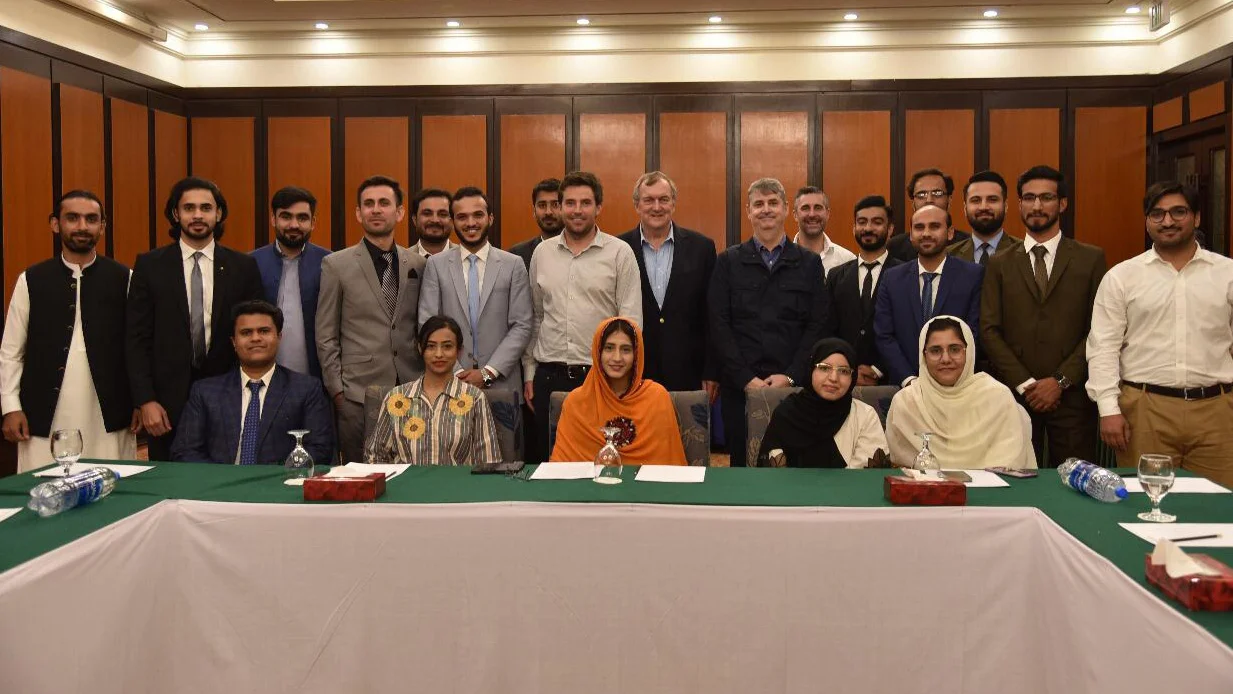QUETTA: The Reko Diq Mining Company (RDMC) has selected 18 graduates from Balochistan. As a result, they will participate in a two-year on-job training program, as stated by the company.
The company selected the cohort as part of its International Graduate Development Program (IGP). Subsequently, they will receive training at the mines operated by Barrick, the parent company of RDMC. Furthermore, this training will take place in Argentina and Zambia.
Barrick CEO Mark Bristow welcomed the graduates at a ceremony in Karachi. He said the program aimed to engage young graduates from Balochistan. The goal is to equip them with the necessary skills for successful careers in the mining industry.
“I would urge you to embrace this opportunity to learn, collaborate and shape the future of the Reko Diq project, your province and the country.”
Also See: South Asian Talent Granted Saudi Citizenship
The Second Batch of Applicants
For the programme’s second cohort in 2024, the company received over 3,000 applicants. The 18 selected graduates hailed from different districts in Balochistan. These districts include Panjgur, Gwadar, Quetta, Loralai, Khuzdar, Noshki, Musa Khel, Qila Saifullah, Zhob, and Chagai. Reko Diq is working on a mining operation in the Chagai district.
The graduates hold degrees in various fields, including Electrical Engineering, Mechanical Engineering, Geological Engineering, Civil Engineering, Environmental Sciences, Mining Engineering, and Geology.
“This hands-on experience is designed to equip them with practical skills and insights into world-class mining operations,” the statement said.
Their participation in the programme not only helps to address the regional skills gap but also promotes local empowerment and economic development.
“Barrick’s philosophy emphasizes the importance of creating shared value for local communities,” the statement said, adding that the company aimed to invest in local talent for “a lasting impact in the regions where it operates”.
This news is sourced from Dawn News and is intended for informational purposes only.


![Ukrainian and Russian flags with soldier silhouettes representing ongoing conflict. [Image via Atlantic Council].](https://southasiatimes.org/wp-content/uploads/2026/02/2022-02-09T000000Z_1319661209_MT1NURPHO000HXCNME_RTRMADP_3_UKRAINE-CONFLICT-STOCK-PICTURES-scaled-e1661353077377.jpg)



![Truck traveling along the Makran Coastal Highway in Balochistan, with rugged cliffs and the Arabian Sea coastline in the background [Image via Getty Images].](https://southasiatimes.org/wp-content/uploads/2026/02/Balochistan-2.webp)